4 Things to Consider in Heathenry
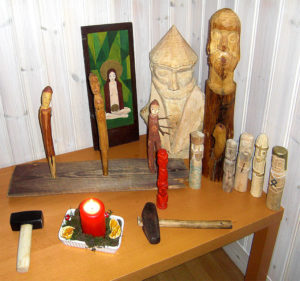 It’s been about six years since Tyr and Thor first entered my life as Norse gods and I’ve entered Heathenry. (Tyr has been in my life for years, only I didn’t recognize him.) I’ve been thankful they’ve done so because they’ve offered a a new perspective on my life that I had not gotten any other way. I still deal with a number of really stupid issues due to Christianity that I brought with me, but I can feel a certain amount of healing going on that I just didn’t have with the other religions, and lack of religion.
It’s been about six years since Tyr and Thor first entered my life as Norse gods and I’ve entered Heathenry. (Tyr has been in my life for years, only I didn’t recognize him.) I’ve been thankful they’ve done so because they’ve offered a a new perspective on my life that I had not gotten any other way. I still deal with a number of really stupid issues due to Christianity that I brought with me, but I can feel a certain amount of healing going on that I just didn’t have with the other religions, and lack of religion.
This piece is a reflective piece, but it is also some advice I have for new Heathens and those who are still on the path after a number of years. This is my perspective, as always, and as I often say, Your Mileage May Vary (YMMV) or, as a professor once tried to guess the acronym, Your Mouse Might Vomit.
Moving into Heathenry from Christianity
Heathenry, and in fact, Paganism, isn’t really about rebelling from Christianity (or another religion), though you may go through a period of comparison and outright hostility toward your previous religion. I know I did. It’s that part of your bruised ego when you finally realize that everything you were told as a child was a lie and there is no Christian god. (Even if you believe there might be a Christian god, you can’t possibly believe it is as powerful as the Christians claim.)
Now that you have your newfound beliefs, it may be tough to not stick them in other people’s faces. But what exactly are you hoping to accomplish? Are you looking to alienate your friends and family, because you’re sure not going to convince them to convert? It’s better to not say anything and keep the peace than it is to rile everyone up. Of my family, only my husband knows I’m a Heathen, and as far as I can tell, he’s good with it. Of course I don’t rub it in his face, either. If he wants to remain an atheist agnostic, that’s his choice, and I respect that.
Heathenry isn’t Christianity with Many Gods
Heathenry isn’t Christianity with many gods instead of one god. While Christianity had adopted many pagan beliefs into their doctrine, it still isn’t what a Heathen believes. Christian states that man was given mastery over the world and all animals. This is clearly hubris, in my not so humble opinion. Heathens look at ourselves and our gods as being part of the natural world. We are just one species in a realm of natural and supernatural creatures. We recognize where we are in the world and how we need to be mindful of those creatures, both seen and unseen.
Whether you are agnostic on the supernatural critters like me, or whether you believe in them is irrelevant. It is part of our lore and deserves at least some attention, if not outright acknowledgment. If anything, our ancestors’ beliefs and stories make for some fascinating reading.
No One Has the Right Answers
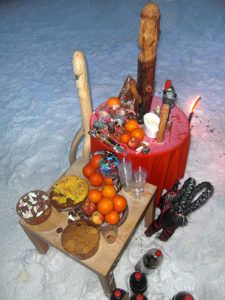 I’ll say it right up front that those who claim to “know” how Heathenry should be is full of shit. Sure, we have some good ideas how some of our ancestors practiced Heathenry, but overall, we don’t have a perfect picture how to reconstruct it. The problem is that Heathenry covers at least a thousand years, if not more, and the ways our ancestors practiced Heathenry varied from generation to generation and from region to region.
I’ll say it right up front that those who claim to “know” how Heathenry should be is full of shit. Sure, we have some good ideas how some of our ancestors practiced Heathenry, but overall, we don’t have a perfect picture how to reconstruct it. The problem is that Heathenry covers at least a thousand years, if not more, and the ways our ancestors practiced Heathenry varied from generation to generation and from region to region.
Although there were gothis and gythias, there were no Asa-popes telling people how to behave, and if there were one or two, they wouldn’t have affected all of Heathendom. While there may have been a major temple in Uppsala, the archaeological evidence for it is scarce. (Even if a Christian church were to be built on top of it, you would think there would be some evidence.)
Moving Forward Instead of Looking Back
Heathenry is an ancient religion with deep traditions. I won’t argue with you there. We don’t know all the traditions, and those that we do know about were written down by people of other religions, who may or may not have had their own agendas. Ancient historians are not infallible.
 Even if we somehow magically figured out everything about Heathenry in the ancient times, would we really want to mimic it? If you say “yes” then apparently you want to bring back human sacrifice, and that makes you a total loony tune, crazy person that I want nothing to do with. And yeah, that’s one of my rules: no human sacrifices. There are other behaviors we should not mimic — not if we follow our own version of the ethics of reciprocity.
Even if we somehow magically figured out everything about Heathenry in the ancient times, would we really want to mimic it? If you say “yes” then apparently you want to bring back human sacrifice, and that makes you a total loony tune, crazy person that I want nothing to do with. And yeah, that’s one of my rules: no human sacrifices. There are other behaviors we should not mimic — not if we follow our own version of the ethics of reciprocity.
Heathens need to look forward, not back. Our past can give us guidelines for our future, but they’re just that: guidelines. The past was not only a different time, but humanity saw things differently. We didn’t have the technological advancements, longevity, medical treatment, and overall knowledge about the world then that we do now. It would be foolhardy to live in the past without accounting for the future.
Well, I’ve rambled enough. Let me know what you think.
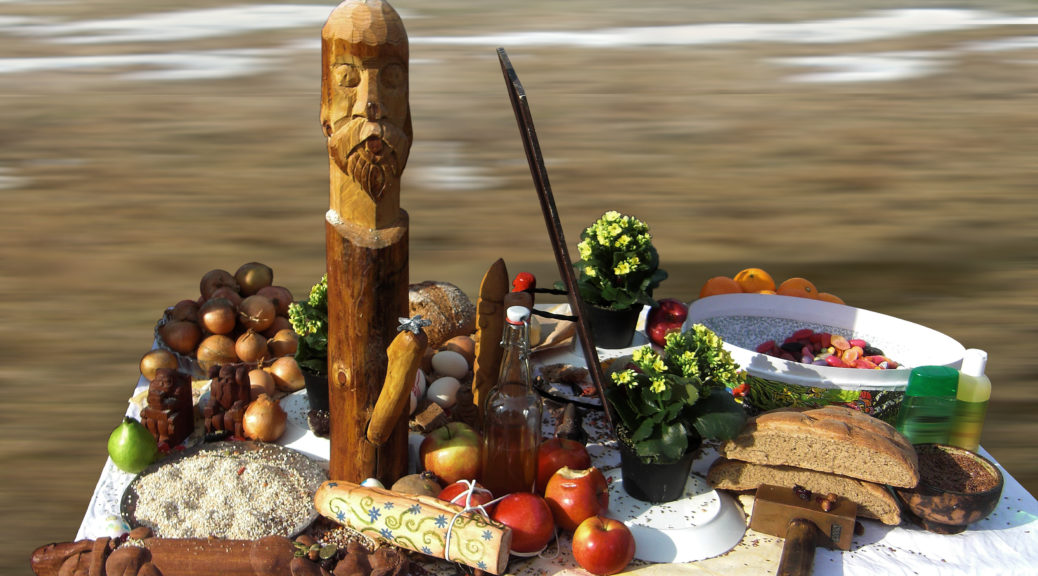
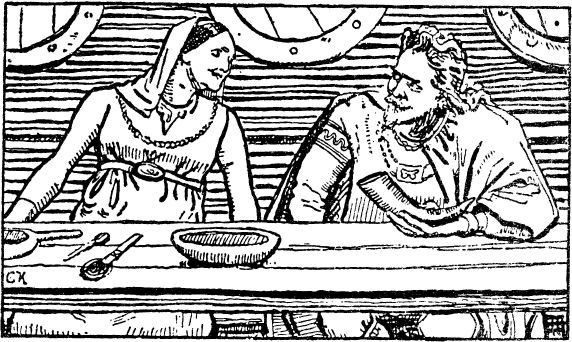
 I was reading the pagan forums on Patheos the other day and I thought about how Heathens are underrepresented there when it comes to pagans. And then I started thinking about how much of paganism is really geared toward the Wicca crowd and maybe the Celtic crowd, if they’re lucky. So, I started thinking about why Heathens (to paraphrase what Rodney Dangerfield used to say) don’t get no respect. To this end, I’ve come up with five reasons why Heathenry isn’t represented in paganism more often, but I bet you can come up with more, if you put your mind to it.
I was reading the pagan forums on Patheos the other day and I thought about how Heathens are underrepresented there when it comes to pagans. And then I started thinking about how much of paganism is really geared toward the Wicca crowd and maybe the Celtic crowd, if they’re lucky. So, I started thinking about why Heathens (to paraphrase what Rodney Dangerfield used to say) don’t get no respect. To this end, I’ve come up with five reasons why Heathenry isn’t represented in paganism more often, but I bet you can come up with more, if you put your mind to it. and Folkish Organizations
and Folkish Organizations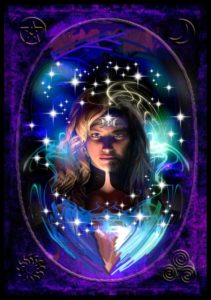 When Thor and Tyr called me to Heathenry, I was relieved to find out that magic played a minimal role in the religion. That being said, a lot of people are
When Thor and Tyr called me to Heathenry, I was relieved to find out that magic played a minimal role in the religion. That being said, a lot of people are 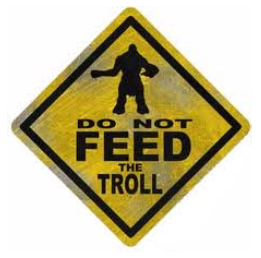 denounce that person if they don’t immediately join the recon trolls. In fact, you’ll find a bunch of misogynists and Asa-popes telling people how to practice Heathenry. When the person balks (as they rightfully should), the trolls start calling them Marvel fanboys (or fangirls), Wicctrus, or Lokeans (never mind that
denounce that person if they don’t immediately join the recon trolls. In fact, you’ll find a bunch of misogynists and Asa-popes telling people how to practice Heathenry. When the person balks (as they rightfully should), the trolls start calling them Marvel fanboys (or fangirls), Wicctrus, or Lokeans (never mind that  A big problem in Heathenry is the overall ambiguity of our beliefs. We really don’t have a lot of stories to go on — not like the stories we have from the Romans and Greeks about their gods and goddesses. Islamic and Roman historians as well as Christianized northern peoples who lived two hundred years later wrote down all of our stories.
A big problem in Heathenry is the overall ambiguity of our beliefs. We really don’t have a lot of stories to go on — not like the stories we have from the Romans and Greeks about their gods and goddesses. Islamic and Roman historians as well as Christianized northern peoples who lived two hundred years later wrote down all of our stories. 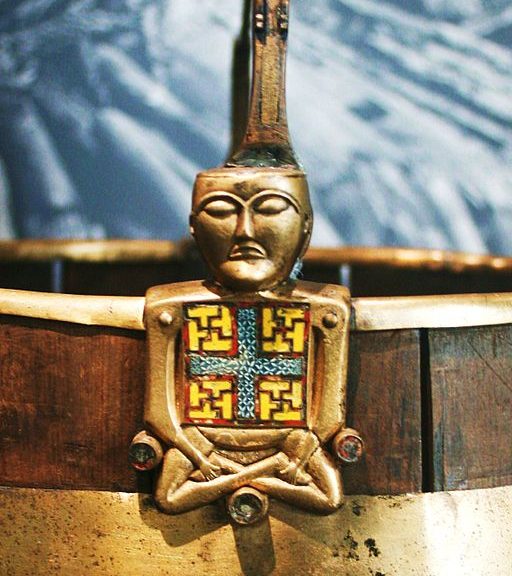
 Once again, I’ve stumbled onto some really big bullshit about arch heathens, so I think it is time to make my opinions known on the subject. Arch heathens, if you get the current vernacular, were an impressive, idealized version of the Heathen. Sort of an uber Heathen, as it were. These purported arch heathens kept the faith pure and knew some sort of unwritten code of conduct across the ancient world that spanned from Greenland to Russia and south into Africa, and across several thousands of years ago, ending with the conversion to Christianity. They were of one mindset and kept the faith pure. (Ein volk! Ein reich! Ein führer!) <– That was sarcasm for those who don’t recognize it.
Once again, I’ve stumbled onto some really big bullshit about arch heathens, so I think it is time to make my opinions known on the subject. Arch heathens, if you get the current vernacular, were an impressive, idealized version of the Heathen. Sort of an uber Heathen, as it were. These purported arch heathens kept the faith pure and knew some sort of unwritten code of conduct across the ancient world that spanned from Greenland to Russia and south into Africa, and across several thousands of years ago, ending with the conversion to Christianity. They were of one mindset and kept the faith pure. (Ein volk! Ein reich! Ein führer!) <– That was sarcasm for those who don’t recognize it.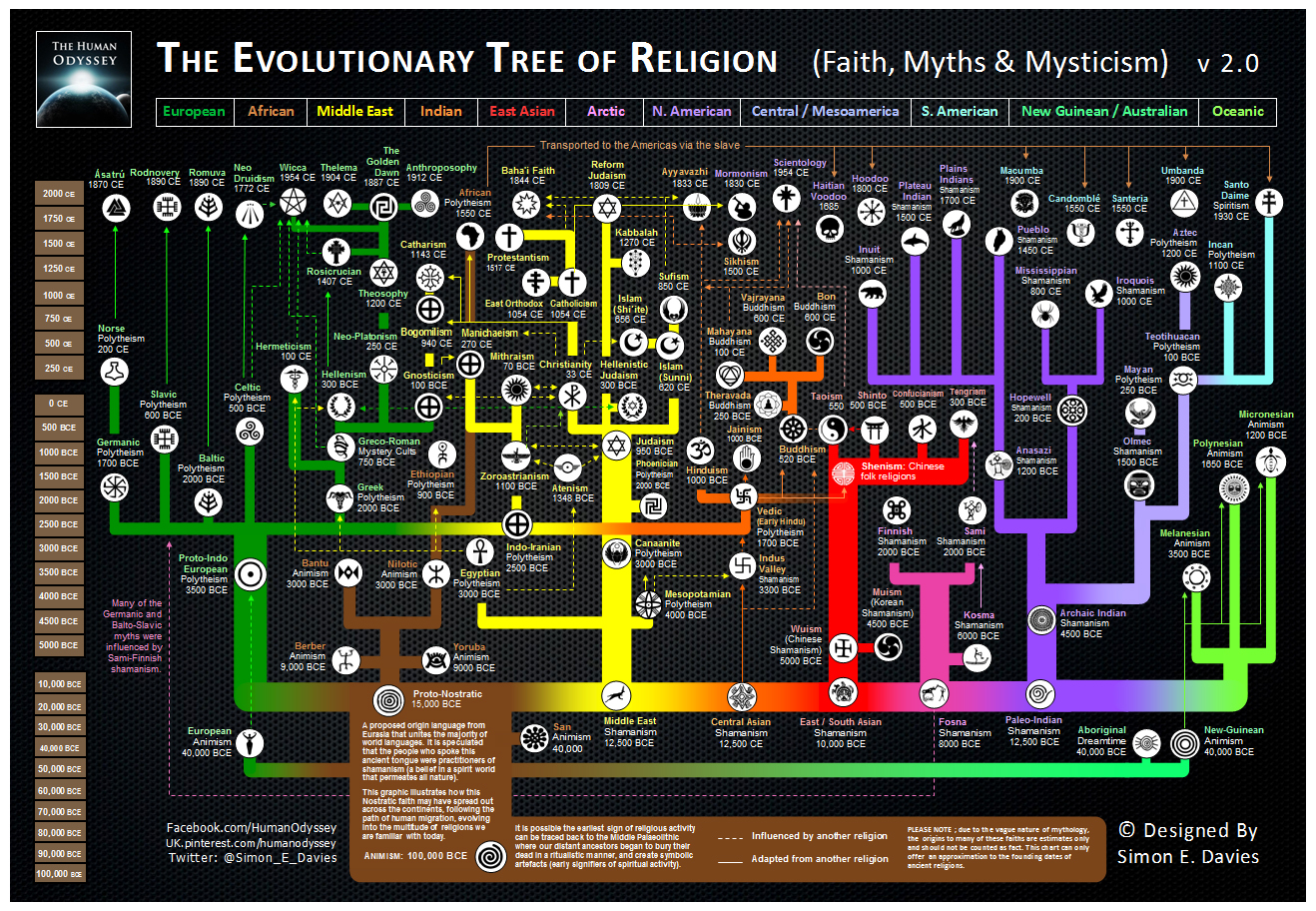
 guy who was in Germany at 1700 BCE? Are we talking about the guy back in 3500 BCE wherever the Hel he was? Or are we talking about the Viking arch heathens? And which Vikings? Are we talking Iceland or Russia? Maybe Sicily? Or France? How about North Africa?
guy who was in Germany at 1700 BCE? Are we talking about the guy back in 3500 BCE wherever the Hel he was? Or are we talking about the Viking arch heathens? And which Vikings? Are we talking Iceland or Russia? Maybe Sicily? Or France? How about North Africa? have pinpoint accuracy with historical writings or archaeology. A lot goes on in 200 years in cultures. Don’t believe me? Look back 200 years in our recent past. In 1818, we had no car, no electricity, and the United States had only 20 states. Too modern? Okay, let’s compare 1818 with 1618. Jamestown was founded in 1607 and by 1618 there were a handful of new settlements. People still believed in persecuting witches then. Ships were pretty much wind driven. The Mauritius sailed in 1618. In 1818, we were working on the cusp of the Industrial Revolution with steam engines and steamboats. In 1810, England had its first primitive railroad. By 1827, we had the first railroad in the United States. The 30 years war started in 1618 started by the Jesuits against the Protestants. By 1818, the United States had freedom of religion in place in the Constitution.
have pinpoint accuracy with historical writings or archaeology. A lot goes on in 200 years in cultures. Don’t believe me? Look back 200 years in our recent past. In 1818, we had no car, no electricity, and the United States had only 20 states. Too modern? Okay, let’s compare 1818 with 1618. Jamestown was founded in 1607 and by 1618 there were a handful of new settlements. People still believed in persecuting witches then. Ships were pretty much wind driven. The Mauritius sailed in 1618. In 1818, we were working on the cusp of the Industrial Revolution with steam engines and steamboats. In 1810, England had its first primitive railroad. By 1827, we had the first railroad in the United States. The 30 years war started in 1618 started by the Jesuits against the Protestants. By 1818, the United States had freedom of religion in place in the Constitution.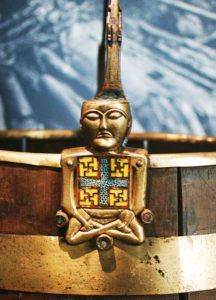 I’ve talked a lot about how Heathenry had been influenced by other cultures and religions. Our ancestors traveled — a lot! They had boats, they had horses, and yes, they had their own two feet. Heathens traveled east into Russia, south into Africa, and west into North America. They saw many different cultures and peoples — and they didn’t kill or conquer all of them. Many they traded with. We have found religious symbols from other cultures (such as the Buddha!) in gold hordes, and we know that Norsemen and Islam have had contact. Since Heathens were open to other forms of beliefs, even then, some aspects of other religions got adopted and incorporated as people from other cultures became assimilated into the Heathen culture.
I’ve talked a lot about how Heathenry had been influenced by other cultures and religions. Our ancestors traveled — a lot! They had boats, they had horses, and yes, they had their own two feet. Heathens traveled east into Russia, south into Africa, and west into North America. They saw many different cultures and peoples — and they didn’t kill or conquer all of them. Many they traded with. We have found religious symbols from other cultures (such as the Buddha!) in gold hordes, and we know that Norsemen and Islam have had contact. Since Heathens were open to other forms of beliefs, even then, some aspects of other religions got adopted and incorporated as people from other cultures became assimilated into the Heathen culture.

 If you’ve been a Heathen for any amount of time, you’ve heard of UPG or
If you’ve been a Heathen for any amount of time, you’ve heard of UPG or  s over Unverified Personal Gnosis because it is something that isn’t easily provable. It’s personal, meaning that only one person has had that revelation. We can’t go back and quantify that the gods really did speak to that person. To use logic, it’s very hard to prove a negative.
s over Unverified Personal Gnosis because it is something that isn’t easily provable. It’s personal, meaning that only one person has had that revelation. We can’t go back and quantify that the gods really did speak to that person. To use logic, it’s very hard to prove a negative. Can Unverified Personal Gnosis be Verified?
Can Unverified Personal Gnosis be Verified?
 (Oh shit, someone knew I was going to drag them into this.)
(Oh shit, someone knew I was going to drag them into this.) UPGs had to be the way our ancestors learned about the gods. Think about it. There wasn’t a giant classroom with a bunch of Heathens sitting around throwing spitwads at each other while Odin tried to teach them cosmology. (Or was it Tyr?) I can just imagine Loki teaching everyone how to misbehave while Thor comes in to maintain order. Yeah, warped mind. Deal with it.
UPGs had to be the way our ancestors learned about the gods. Think about it. There wasn’t a giant classroom with a bunch of Heathens sitting around throwing spitwads at each other while Odin tried to teach them cosmology. (Or was it Tyr?) I can just imagine Loki teaching everyone how to misbehave while Thor comes in to maintain order. Yeah, warped mind. Deal with it.



